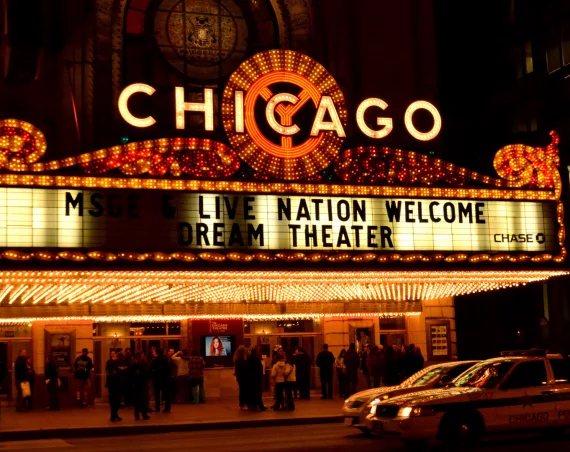
Inflation
Photo by Mike Kononov on Unsplash
This episode is about financial language, inflation and the cost of living crisis.
Powered by RedCircle
Transcript
Hello and welcome to Learn English Vocabulary. My name is Jack and I’m making this podcast for you to learn or revise English vocabulary. You can find a transcript of this podcast on LearnEnglishVocabulary.co.uk. There’s a page for this podcast with the transcript, an activity and a task for you to do in the comments section.
Today, I want to talk about some topical language, that is language that is in the news a lot at the moment. I’m not normally very interested in these things, but here in the UK, we are facing a cost of living crisis. A crisis is a time when lots of people are suffering or at least are not happy. And the cost of living, that is, the money that people need to spend on food and somewhere to live, to pay for everyday basic needs, has risen dramatically. So people are not happy and there are lots of stories in the news about this situation so I thought it would be useful to look at some of the technical language related to this topic.
The language I’m talking about today will be mostly B2 with a few C1 items so it will be especially useful for upper-intermediate and advanced learners.
This language will also be useful for learners who are planning to take an IELTS exam as this topic is popular and it’s a good opportunity to demonstrate you know how to use some B2 and C1 vocabulary.
If you are not sure what level you are, you can always complete a placement test on English Focus.com. There’s an adaptive test that I created to place learners for speaking based courses, but the placement test is available to everyone. Check it out on EnglishFocus.com.
In this podcast, I’m going to present a news story in three sections. After each section, I’ll talk about the most important vocabulary and then I’ll move on to the next section.
The inflation rate in the UK has reached 10%, the highest it has been since the 1970s. The inflation rate is calculated by the Office for National Statistics, which is a government department that gathers data about all kinds of things. They monitor the prices of different products like types of food and clothes and all sorts of other household expenses and compare the current prices with previous years to see how much prices are going up or down. Over the last 20 years in the UK, inflation has been around 2% and this has been good for the economy. Having a stable rate of inflation means consumers feel confident about how much money they have and so are happy to spend their income. However, when prices go up, especially if they go up quickly, people have less money to spend on non-essential items and they are also less confident about what their essential items will cost so people are more careful about how they spend their money.
OK – let’s look at the vocabulary.
The first word I want to talk about is economy. The economy means the system of trade in goods and services. People normally talk about the economies of different countries. The German economy or the US economy, but you do also hear people talk about the global economy. If you study this at university the subject is economics. Listen to where the stress is: economics is the academic subject that looks at the economy. The word economic is an adjective that just relates things to the economy. So you might hear the phrase economic trends or an economic boom. We also use the adjective economical which describes something that doesn’t use a lot of fuel or require a lot of money. Small cars are usually more economical to run than big trucks.
Inflation is a noun from the verb to inflate. If you inflate something, it gets bigger. Normally, you can inflate tyres on bikes and cars and balloons. When you blow up a balloon, you are inflating the balloon. As well as balloons, people also talk about numbers. If you inflate numbers, you make them bigger. You might hear someone complain that the numbers in a sales report had been inflated. In economics, inflation is a number that represents the increase in costs of the things people regularly buy. The number is represented as a percentage. So at the moment, inflation is at 10%. The ONS looks at the cost of items and compares the prices over 12 months and then expresses the difference as a percentage. So everyday items today are 10% more expensive than they were 12 months ago.
I used the word household in the phrase household expenses. Household refers to things and activities that you do in your home. So your household expenses include your food and bills and everyday clothing.
A consumer is a person who consumes. To consume really means to eat, but when you’re talking about business and sales consumers are the people who use goods and services. It’s very similar to customer and in most cases, a customer is also a consumer. A customer is the person who pays for something and the consumer is the person who uses or eats it. My children consume quite a lot, but they are not normally customers.
Listen to the next part of the article.
What is the cause of the current inflation?
The prices of goods are set by lots of different factors, but the most influential are supply and demand. Supply is how much of something there is and demand is the number of people who want it. Some products, like oil and gas are also traded before they are delivered on what are called futures markets so the prices of oil and gas can be affected by general economic trends. But for most things, supply and demand are the main factors that have an impact on the cost of goods.
The Covid pandemic closed lots of businesses for months. Factories closed down and this meant that the supply of items was reduced. This hit the building trade first in the UK. The cost of building materials, especially doors and windows, went through the roof and the time it took to have these things delivered increased. It took longer for the disruption to other supply chains to impact the prices, but manufacturing has still not recovered to pre-pandemic levels and so the supply is still down which means prices are high.
Futures markets used to be special auctions where commodities could be traded before they were actually on the market. A commodity is anything that can be bought and sold, but usually, these are things from farms and factories. I think that all of these trades are done online now.
Supply chains means all the stages from farm or mine to the market. So for clothes, the supply chain might start at the cotton farm. It includes the cotton mill, the fabric production and all the dyes and other chemicals that are required, the buttons and zips and any other bits like the leather in the badge and then the factory where the denim is cut and the jeans are sewed together and then the transportation to the shops. If any of these stages are stopped then you won’t be able to buy jeans. During covid, it was sometimes easier to blame shortage on problems in the supply chains because the disruption was so widespread, you couldn’t say exactly where the delays were being caused.
Manufacturing is what happens in factories. It means the same as making, but we use it to describe the industrial process. Hmmm – Industry is when people make things to sell. It includes all the processes and people who work to produce goods. You can talk about specific sectors, the chemical industry or the film industry. For farming, we use the word agriculture. I think that’s right. If you grow plants to eat, you are a gardener and that’s just growing things, but if you grow things to sell, that’s agriculture. When we talk about industry, you normally think of factories and the production of lots of things. The car industry for example produces thousands of vehicles a year. Manufacturing means making things for sale. It’s manufacturing when it’s on an industrial scale.
OK – I’m going to get back to the story.
What about the cost of energy?
Energy costs have risen by far more than the rate of inflation. Businesses and households will need lots of financial support from the government to survive the coming winter. Some analysts have attributed this rise to the war in Ukraine. Russia is the world’s third largest supplier of oil and natural gas. Because of sanctions and who knows what political manoeuvrings, the supply of Russian oil and gas to Europe has been cut. However, Russia is still exporting similar levels of oil and gas, but through Asia so the global supply has not been affected enough to explain the massive increase in costs. As I mentioned earlier, oil is traded before it is delivered on special markets. These futures markets are traded on by investors who try to predict the future market demands. So when the economy is not stable, the investors will be less confident about future demand and this can put the price up.
There have been calls on oil producing countries to increase production, but OPEC, the organisation of petroleum exporting companies, has said that they are more likely to reduce their output in the event of a global recession, to support the price of oil. All the while, energy companies like Shell, BP and Chevron have been making huge profits. However, the price of oil and natural gas is not set by these oil companies. Instead, the price is determined on futures markets where commodities are traded where the confidence of investors can affect the price of energy as well supply and demand.
Finance is money. Well, it’s the system of supply and trade of money. So finance relates to anything to do with money. Banks provide financial services. Financial is the adjective form. Loans and savings accounts are financial services. Financial support means help to buy or pay for something. There is a newspaper in the UK called the Financial Times which is all about the economy and international trade and big companies and how they are doing. To be honest, I haven’t really read the Financial Times, but I think that’s the sort of thing that’s in it.
Sanctions are orders, a bit like laws that stop people trading with countries to apply political pressure on the government of that country. Sometimes, there are sanctions that only apply to one industry, and other times, there’s an international ban. You need to have organisations like the United Nation to impose sanctions or they aren’t effective. The current sanctions on Russia are supposed to be in place to slow or stop the war in Ukraine, but the Russian political leaders do not seem to be paying much attention.
The overall size of an economy can be measured. If an economy is getting larger, then a country is said to have economic growth. However if the economy in a country gets smaller, then a country can have a recession. Politicians are terrified of recessions because people lose their jobs and it can take a long time for an economy to grow out of a recession. Generally, a recession is a time when the economic activity in a country is poor and businesses are not successful.
The last word I want to look at today is profits. Profits are the money that a company has left over after they have paid for all their costs. So a baker has to pay for flour and also for energy to bake the bread and probably for some staff to help him or her. When they sell their bread, they need to pay all their costs out of the proceeds and their profits are what they have left. Some companies are very profitable. I always think pizza companies in the UK must be profitable, as long as they can sell their pizzas. The ingredients are not expensive so that means that the profit margins on pizza must be quite high.
The high cost of energy is going to have an impact on the cost of everything else. Farmers and importers need energy for their tractors and to transport their produce, factories need energy for their machinery, shops, restaurants, transport, hotels, hospitals, schools, everyone needs energy. So we are at risk of an inflationary spiral. The cost of energy is high, partly because of disruption to the supply, but also because of loss of confidence on the futures markets because of inflation. But now, this high energy cost is going to cause prices to go up. So inflation is causing inflation.
I am not an economist and I don’t really understand how futures markets work but my goal is to explain vocabulary related to inflation and the economy rather than inflation and the economy. Hopefully, this vocabulary will help you if you want to find more because there are lots of other podcasts that really do try to help you understand the topic.
I do hope this language is useful and that you have enjoyed this podcast. As always, I love reading your comments so please leave me a comment on the site or a rating or a review on Apple podcasts. I love to hear from you and any comments or suggestions you have. Thank you also to those of you that have bought me a coffee. I really appreciate it.
If there are any topics or songs or scenes from a film that you would like me to talk about or anything else you would like to hear, I would be delighted to make a podcast for you. So please visit LearnEnglishVocabulary.co.uk and say hello.
Thanks for listening.





3 Comments
Anastasiia
Hello, Jack!
Thank you for making an amazing quality podcasts again!
I would like to ask if you could record an episode, talking about languages, dialects and accents in the UK? I’m wondering to learn more about these differences all over UK.
Will be happy, if you find this topic interesting for yourself.
Thank you in advance!
Joanna
Very interesting topic and a huge dose of vocabulary and phrases. I love your podcast and really appreciate your effort to make it. Greetings from Poland, where the inflation rate is about 16% now and unfortunately still growing. Wish you small amounts on your electricity bills 😉
Antonio
Hello Jack
I’m looking forward to hearing you again.
thanks and blessings from Mexico